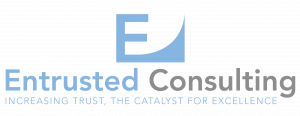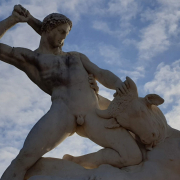Do Ethics Matter in Leadership?
Having worked for many years in a broad spectrum of organisations I am left with some common threads that seem to always be present in those that work most effectively. Before discussing a few of these threads I think it’s important to shed light on what an organisation is?
What actually are organisations (Whether a Commercial body or a church)?
I would like to suggest it’s better to look at them as a ‘system’ constructed by its members through the interaction of its members. So to be a bit off-the-wall, an organisation is just a thought, not a thing. An imaginary construct of what is happening. Fundamentally it works because on the whole people come to work each day to do tasks, that should they agree locally are the right things to do and this extends throughout the whole group, it all works as a whole rather than by ‘divine direction’ from the physical top.
If leaders do decide what we do and set the vision, then why are we here now? Would they have designed the current position for any one of their organisations? NO.
So, the organisation emerges. The effective partnership emerges. Ultimately, if individuals interact positively and agree what they do is right, this affects others near them and the overall thing creates patterns that appear coherent and effective – known therefore as emergence – though one has to accept somewhat unpredictable.
Ethics and the critical role it plays in leadership success.
Ethics is an enabler – not so much ethics of the whole organisation, but the ethics of each person in the individual decisions at the most local of levels (1-2-1) through the individual actions we take. Let’s face it, ethics form the basis of trust, and trust is only gained through actions (I see what you do – so you mean it, but only believe you when you repeat it consistently over time).
So the big question is, what do you do if you know this or understand this construct and want to influence and effect good leadership or leadership for good?
Leadership therefore in our context is NOT a ‘heroic figure’, but more all about the local interactions between human beings. Too many people are pre-occupied with the ‘game’ and not thinking how to decide what is best, so are engaged in ‘politics, persuasion and negotiation’ rather than what actually the whole thing is aiming to achieve. So for effective leadership we should stop thinking of pre-designed solutions or ultimate master plans, but more how to influence the ‘group’ in the ‘right direction’.
Excellent leadership (which is in my mind a social phenomenon arising through the interaction between people) is where others recognise you lead and you recognise their roles. Leadership is therefore co-created.
Ethical Leaders therefore must:
Interact locally and regularly
Communicate to large numbers of people. However remember the interpretation is how it is taken up by local interactions. Pronouncements are but gestures and the effect once again is through local responses – we can’t control how it is interpreted.
Understand how it works locally which ultimately is by ‘conversations’. Conversations within groups and between individuals.
Realise they are leaders, only if they are sensitive to the situation and able to articulate what is emerging, which helps the group move forward positively.
Ethical Leaders therefore have to:
Widen and deepen communication to help the group move forward
Try and explore what to do in change (options)
Stimulate ordinary conversations in times of anxiety. Why? Because if we don’t, people jump to conclusions as they look for safety (or to meet their own agenda).
Live longer with being anxious so they keep the conversations going longer so a solution arises that is far better than jumping to quick fixes and mundane solutions no one in the end believes really work.
Be self-reflective to realise they should not be idealised as this can lead to ultimate denigration – let’s face it, Barak Obama realised this when he said he is ‘not the Messiah’ or has all the answers.
Help others take the next step.
So, I agree with those that say selection and training of leaders is essential. That same training should open leaders’ minds to all these insights and help them understand how to manage this uncertainty, while finding the way forward for themselves and for the group as a whole. We have a portfolio of products and services that can affect leadership for good in your organisation. Should you wish to know more, or even put something in place for your leaders, Entrusted can help you put the right things in place.
At Entrusted Consulting, we identify and enhance levels of TRUST in organisations to optimise corporate performance. This is achieved through a range of services from Trust diagnostic tools, coaching, mediation, board assessment and leadership development at all levels. You can learn more about how Entrusted can help you benchmark and improve the TRUST within your organisation, thus enabling greater results. Contact peter@entrustedconsulting.com











